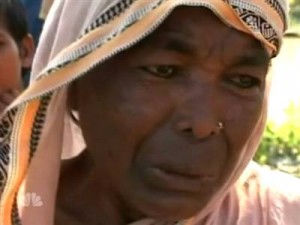Daily Star (Dhaka) | Monday, August 3, 2009
M. Abdul Hafiz
THE 1972 UN Convention on Human Environment held in Stockholm, the 1987 Brundtland report on our "common future," and the 1992 UN Conference on Environment and Development held in Rio de Janerio --dubbed the Earth Summit -- debated the looming danger of an incipient conflict between Nature and man's unsustainable developmental activities. They all were summarily dismissed as scientists' fantasy or overestimation of the danger, if any. The world lent a deaf ear even to the Dahomey Declaration adopted at the 38th Pugwash Conference on Science and World Affairs in 1981, which made a clarion call to expand concern to a broader set of interrelated dangers, the destruction of the environment on a global scale and what could be seen as denial of basic needs for a growing majority of people.
But it's not so anymore. The genie has been unleashed and is on rampage -- thanks to the irresponsible industrialisation and unrestricted use of fossil fuels. Indeed, many of today's ecological problems -- i.e. the generation of as high as 85% of greenhouse gases, resulting in the depletion of ozone layer, global warming and sea-level rise destroying the ecological equilibrium that sustains nature's life support system -- emanate from unsustainable development, the human greed to over-exploit nature, and profligate lifestyle in the rich advanced countries.
As climate change is a stark reality today, adversely affecting the poor who have nowhere to go and nothing to cling to when displaced by drought, famine and desertification, large swaths of farm land and habitat in the coastal areas of the affected countries are being swallowed by swelling seas and salinity.
Greenhouse-induced deforestation, soil erosion and acidification have engendered, directly or indirectly, an alarming environmental imbalance.
In this milieu, man faces an existential problem because the degrading environment and its principal syndromes are linked directly to the future of all nations and threaten the lives of the billions by drying up their water resources, turning their cropland into dustbowls and subsequently causing agricultural decline. I wrote in this space a couple of months ago about how much of the food producing areas are now in disuse because of greenhouse effects. No wonder, the phenomenon couldn't but cause a worldwide food shortage.
With gloomy prospects for recovery from the environmental degradation and its concomitant negative impact on human life, another menace in the form of the acquisition of farm land from the world's poor by rich countries and international corporations is accelerating at an alarming rate. UN officials and agricultural experts say that an area half the size of Europe's farm lands has been targeted in the last six months. According to another report by the UN and analysts in Washington and London, an estimated 30 million hectares are being acquired to grow food for countries that cannot produce enough for their populations.
Such land grabbing is being blamed on wealthy countries.
According to the UN, the trend is accelerating and could severely impair the ability of the poor countries to feed themselves. The issue was recently mooted in the G8 conference, which described the practice as "land grabbing" or "neo-colonialism." A spokesman for Japan's ministry of foreign affairs' feels that there should be a code of conduct for investment in farmlands abroad, ensuring a win-win situation for both the producing and the consuming countries.
Some of the largest deals include South Korea's acquisition of 700,000 hectares in Sudan and Saudi Arabia's purchase of 500,000 hectares in Tanzania. India has lent money to 80 companies to buy 350,000 hectares in Africa. At least six countries are known to have bought large land-holdings in Sudan -- one of the least food-secure countries. Other countries that have acquired land in the last year include the Gulf states, Sweden, China and Lybia. Those targeted include not only fertile countries such as Brazil, Russia and Ukraine but also poor countries like Cameroon, Ethiopia, Madagascar and Zambia.
Investors in foreign farmlands took lessons from the food crisis of 2008, when food imports hit their balance of payments. The craze for land grabbing grows out of speculation on future prices. What has, however, been clear is that the countries have lost trust in the international market and are scared of its volatility. Also, some of the world's largest food, financial and car companies have invested in land, the price of which is, in any case, steadily rising. Therefore, only the poor whose lands were sold or leased out are the net losers. On a bigger plane, both the rich and the poor are losing to the monster we have let loose in the form of greenhouse gases.
Brig (retd) Hafiz is former DG of BIISS (Bangladesh Institute of International and Strategic Studies).












